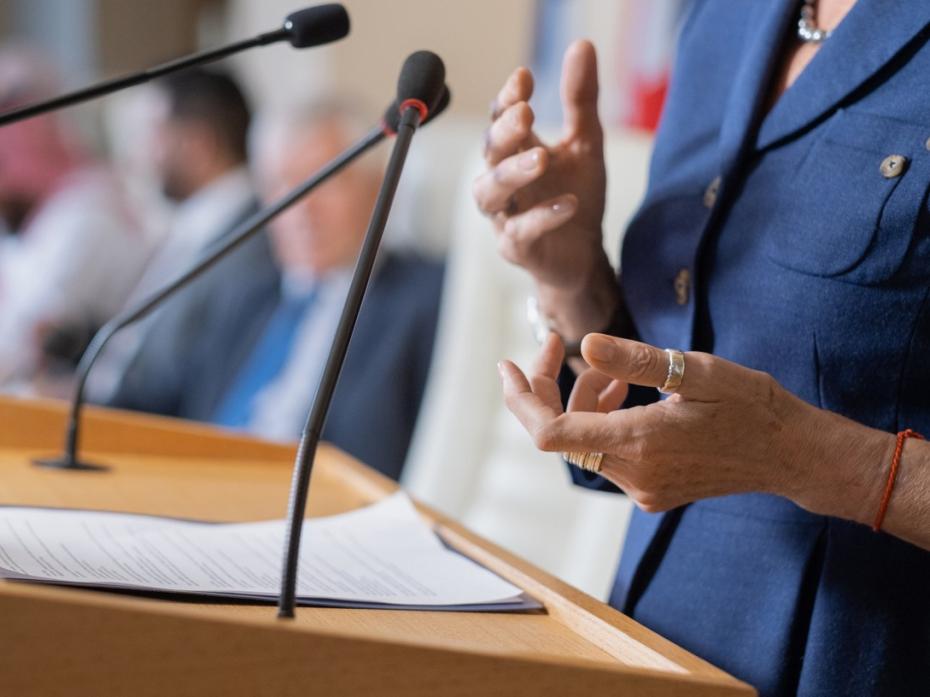
Five things I learned from my trip to Parliament as an early career researcher

In November 2022, I was given the opportunity to present my PhD and postdoctoral research at parliamentary evidence week alongside my colleagues Liam Hill and Nick Preston from the University of Leeds.
My research aims to empower schools with the knowledge and tools necessary to identify children who would benefit from additional support with their fundamental movement skills, so the building blocks to participation in physical activity. Preparation for this event included writing an evidence brief, recording a short video outlining the research and disseminating these to relevant MPs, in order to book in meetings. The day itself involved heading down to Westminster and having five-minute quick-fire meetings with MPs. It was a whirlwind experience, and one I am very grateful for. I learned a lot and wanted to share my experience for early career researchers (ECRs) considering engaging with policy.
- Resource collection: How to promote your research for greater impact
- Practice makes perfect and other networking tips for academics
- Towards independence: blazing your trail as a freelance researcher
1. Trust yourself – you’re the expert
I’ll be honest, it was a very daunting prospect, and one I didn’t feel “senior” enough to be taking on. I had a strong feeling of imposter syndrome. I was very grateful to have more experienced colleagues attending with me, but I quickly learned that they were just as nervous as I was. Throughout the day, I became more confident that I had useful knowledge and insights to share, and that resulted in some very engaging conversations with politicians. Ultimately, I was invited to come along to discuss research that I have been driving forwards – they weren’t interested in how long I had been doing the job.
2. Have clear goals
Know what you want to happen after your meetings with parliamentarians. You don’t tend to get long with MPs to talk through your research so prepare an elevator pitch to allow for discussion afterwards. They will want to know what they can do to support you, whether that be to endorse your research to All Party Parliamentary Groups (APPGs), submit a written question, or advocate for policy change. Without this, MPs will struggle to contextualise how they can help, even if your research is exciting and innovative.
3. Quality over quantity
We had the most meaningful conversations with politicians who had a vested interest in the high-level impacts of our research. Prior preparation was key to this. We spent a long time researching MPs, their interests (through personal websites and submitted questions in parliament), as well as the APPGs and Select Committees they were a part of. I contacted all MPs that aligned with our research on multiple levels (early childhood and school assessment). These are the key people who will be able to help you drive change, beyond the initial meeting.
4. Persistence is key
Influencing policy doesn’t happen overnight. I quickly became disheartened when I wasn’t receiving emails from the MPs who said they would follow up after the event. Eventually these emails did come through and I have had some brilliant support since. Politicians are very busy, they get a lot of emails from constituents and sometimes your emails will fall through the cracks. Don’t feel bad about sending follow-up emails with attachments, such as your evidence brief or an infographic you showed them on the day, to help jog their memory. At the end of the day, if they are really interested and willing to support you, they will respond.
5. Ask for help and support
There is an abundance of help both within the university and from relevant charities, such as Sense about Science. As academics, writing for a lay person can be challenging, and writing for policymakers can be even more difficult, particularly with the current fast-changing political landscape. Having additional pairs of eyes on research briefs and infographics can help ensure you are making the most of the opportunity. The research impact team at the university were brilliant at helping to guide who to approach and how to approach them. Who knew that MPs have researchers working for them – I certainly didn’t.
Overall, it was a brilliant opportunity and it really kick-started a different way of thinking about my research. To drive real change, nationally, politicians need to be engaged with what you are doing. I would advise all ECRs to start thinking about how your research could feed into policy, and actively start looking for opportunities to disseminate your work in this space. It has been a very productive avenue for me so far, and I look forward to continuing to explore it.
Lucy Eddy is a postdoctoral research fellow at the University of Bradford.
If you found this interesting and want advice and insight from academics and university staff delivered direct to your inbox each week, sign up for the THE Campus newsletter.


